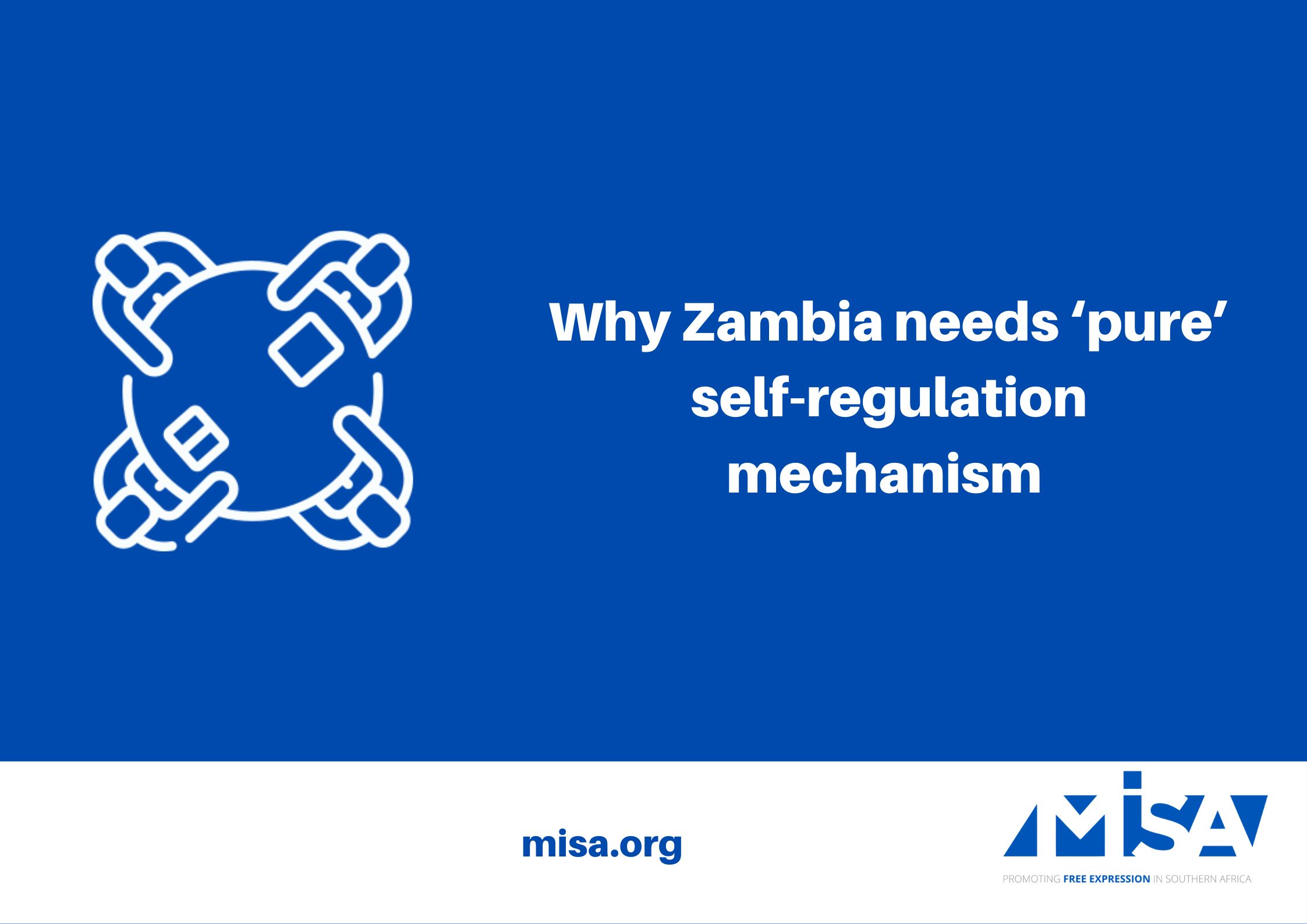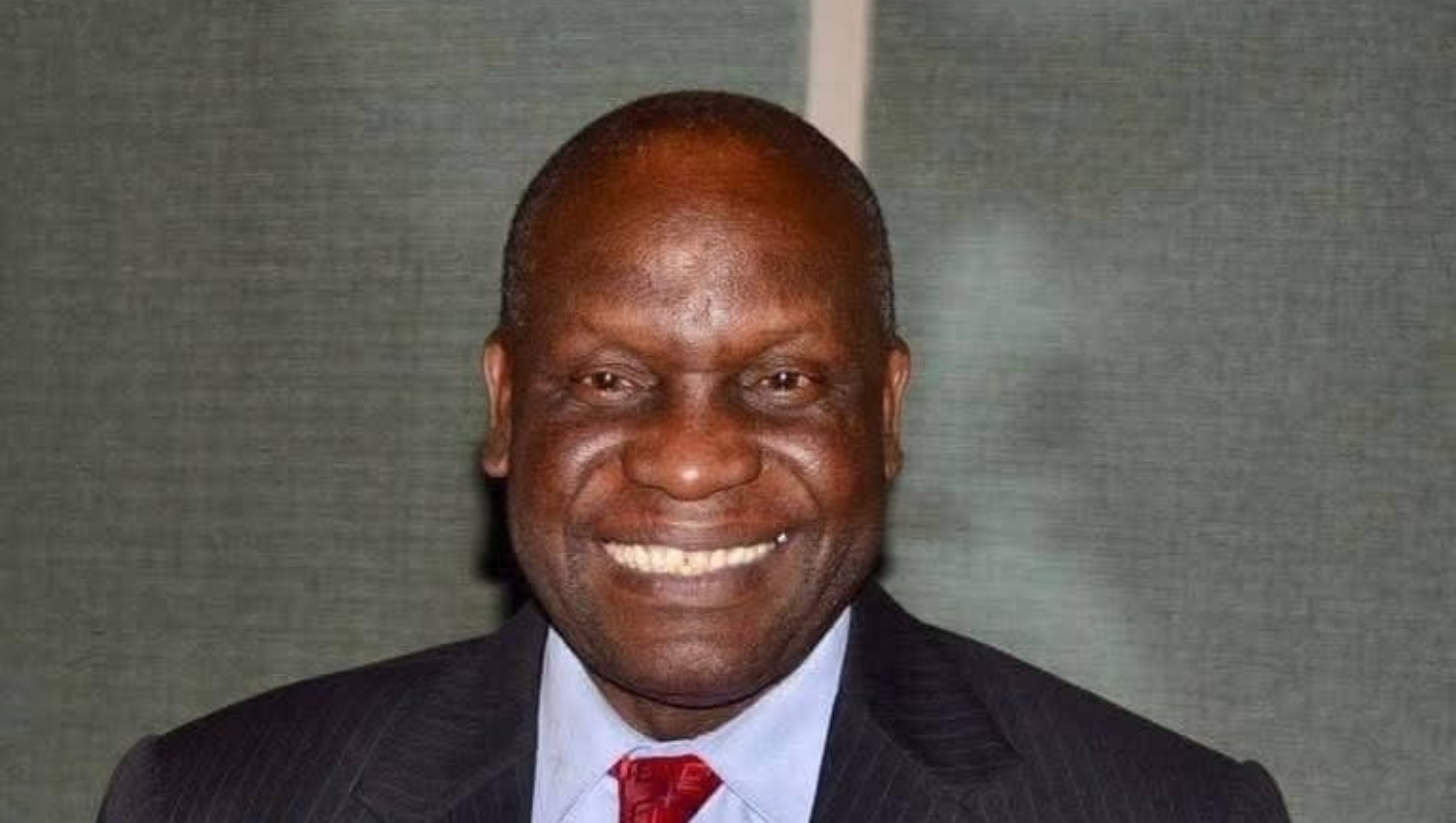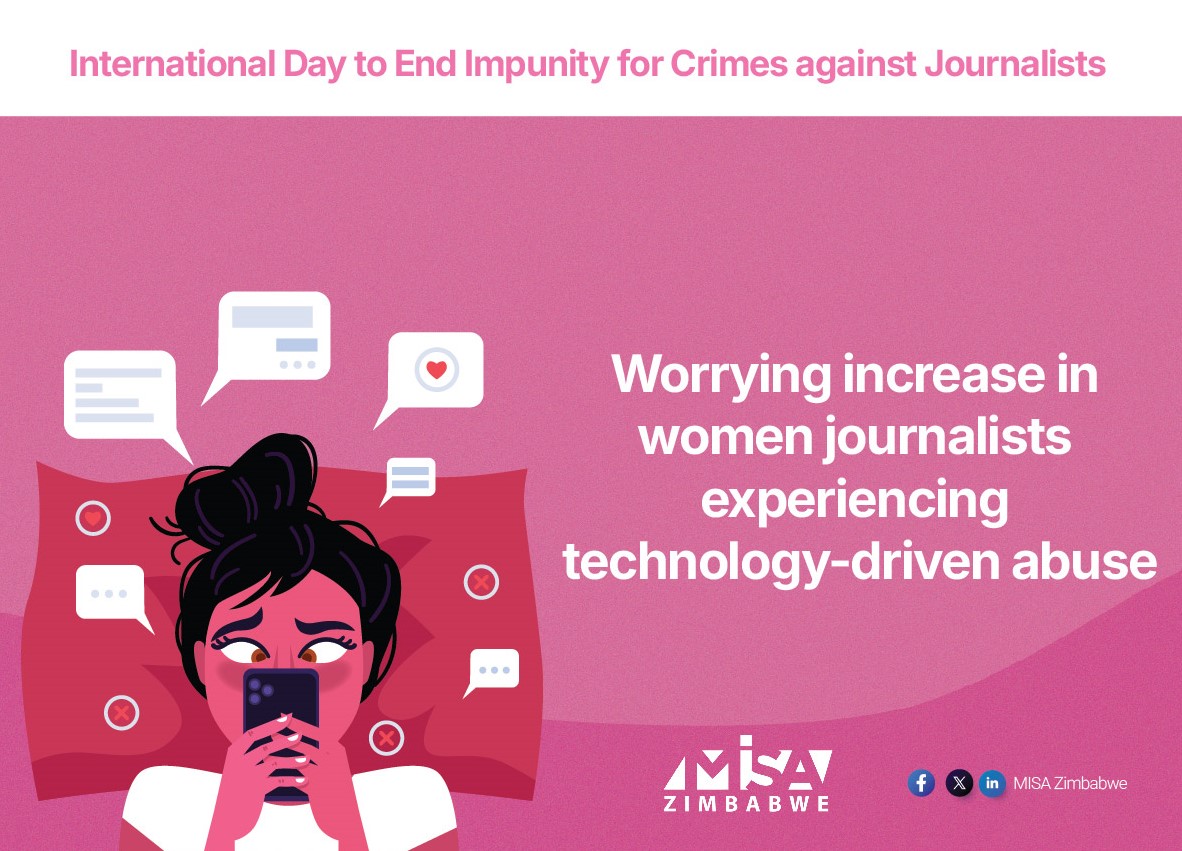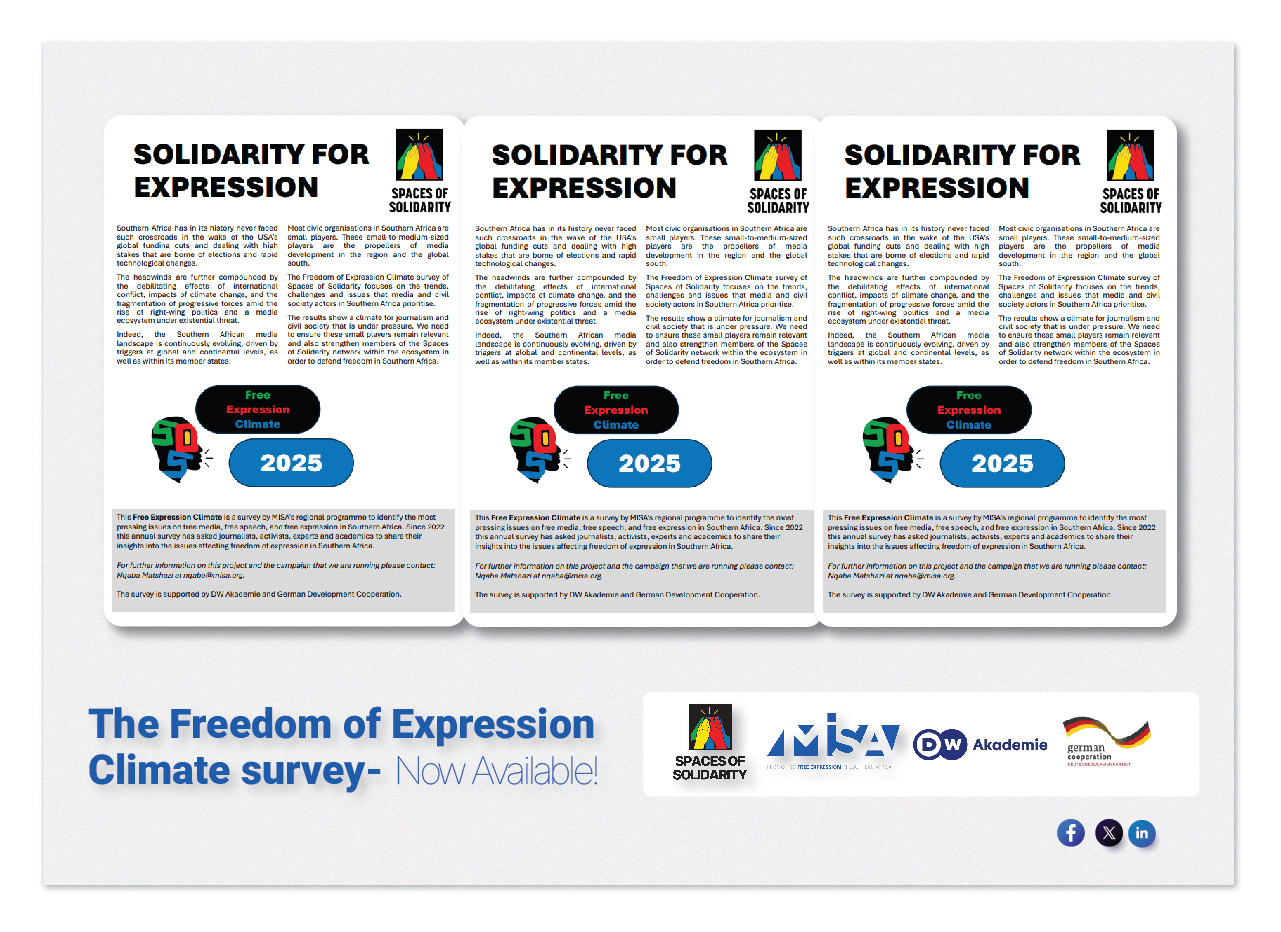The media legislative reform agenda in Zambia received a timely boost last year when President Hikainde Hichilema said he supported self-regulation of the media in that country, triggering excitement amongst stakeholders.
The excitement has since given way to bickering over the type of self-regulation that the media industry wants, with the division between “pure” self-regulation and “self-regulation backed by law”.
The term “self-regulation backed by law” is contradictory already, as once there is a legislative framework governing the operations of the media, it ceases to be self regulation and becomes statutory regulation by all intents and purposes.
Those calling for self-regulation backed by law should be wary of inadvertently calling for statutory regulation, which they might live to regret sooner or later. But more on that later.
The call for self-regulation backed by law is driven by several things, principally that legislation will set a minimum wage for journalists and that the law will bring respect to journalists.
This argument goes further to give the example of lawyers and engineers whose regulation is backed by legal instruments.
Let me start by discussing the welfare issue – the minimum salary journalists want set.
Minimum wages and welfare issues are meant to be dealt with by unions and national employment councils and must not be conflated with self-regulation and advocacy issues.
The desire for a minimum wage is a noble one but bringing it into the discussion on self-regulation muddies the water and gives the government and employers a chance to obfuscate and evade the issue at hand.
To simplify the issue at hand, self-regulation is about the governance of the media sector, and the setting up of an agreed code of ethics and conduct.
Self-regulation is standard setting and setting out the proper codes of behaviour for the media and this is necessary to support freedom of expression. These standards are agreed to by the media industry itself and are monitored, with the media being held to account where it deviates from the agreed standards.
A self-regulatory mechanism is a voluntary set-up of editorial guidelines, which the media agrees to abide by in a learning process that is open to the public.
Through this process, trust is built between the media and the public. If you may recall, building the public’s trust in the media was one of the key elements of the Windhoek +30 deliberations in Namibia in 2021.
At the core of self-regulation are two issues, the independence of the media industry and building trust between journalists and their audiences
An independent media is likely to serve the public’s interest better than one that is legislated, furthermore, Self-regulation preserves the independence of the media and preserves it from partisan government interference.
While media stakeholders may believe that the government is well-meaning and want to use this goodwill to support self-regulation by law, thinking that moral suasion will always drive the authorities to act in good faith, dangers lie ahead.
No matter how well-meaning, governments are participants in political contests and will always make decisions that further their political interests.
Zambians can attest to how the previous political administration abused some media houses and turned them into political mouthpieces, particularly ahead of the last election in 2021.
While Hichilema may be well-meaning, there is no telling what he will do towards the next election when political stakes are higher.
“Time and again, the road to unnecessary legal interference is paved with goodwill, and prompted by the public’s real need for standards in journalism,” writes the former OSCE Representative on Freedom of the Media Miklós Haraszti.
For this reason, no government in the world is best suited to enforce rationality and fairness.
Now is the time to set up and strengthen institutions that will live beyond political parties and strengthen democracy in Zambia and one way of doing that is by entrenching self-regulation.
Democracy is incompatible with state custody of the press. As the OECD argues, media self-regulation is an effort to impose democracy’s political culture, independent of political forces.
While those who support regulation backed by law think this approach makes sense now, they must be reminded that once the law is enacted, repealing such legislation is often a cumbersome process.
You do not need to look far away for examples. Hichilema was elected on a platform that he would institute widespread reforms in the shortest period of time. However, the reforms undertaken so far do not match expectations.
This can be seen from the lack of enactment of access to information law and the slow pace of ensuring broadcast laws and cyber laws are amended.
It is now important for the Zambian media to demand and set up a self-regulatory mechanism set up by the industry to establish and abide by goals, guidelines, and/or ethical principles.
By doing so, media operators accept their share of responsibility within society for the quality of public discourse.
Within this system, compliance by individual media operators and journalists is usually monitored and enforced either within their own media organisations or by an intermediate body
representing public and/or industry interests.
One such example is the ombudsman’s office in South Africa and Namibia.
Welfare issues are important, but the industry needs to learn to separate issues of welfare from issues of self-regulation.












